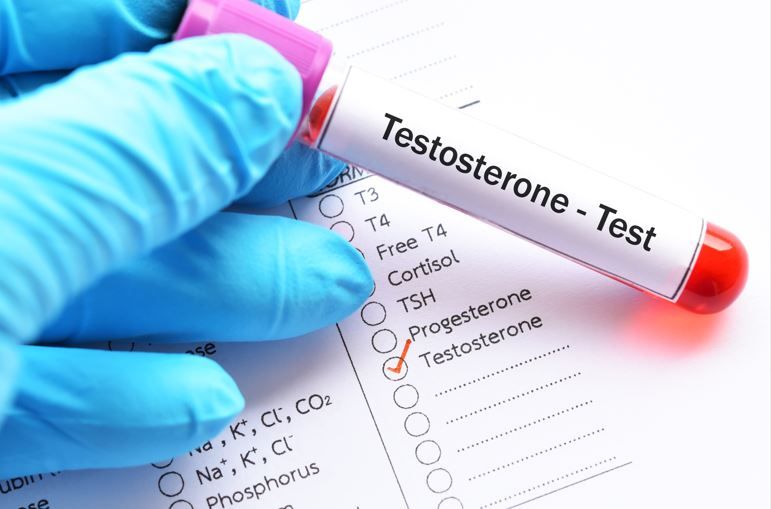- Clinical Technology
- Adult Immunization
- Hepatology
- Pediatric Immunization
- Screening
- Psychiatry
- Allergy
- Women's Health
- Cardiology
- Pediatrics
- Dermatology
- Endocrinology
- Pain Management
- Gastroenterology
- Infectious Disease
- Obesity Medicine
- Rheumatology
- Nephrology
- Neurology
- Pulmonology
Testosterone Replacement Does Not Increase Risk for CV Events in Men with Hypogonadism, New Study Finds
Among older men with hypogonadism who had preexisting or were at high risk of cardiovascular disease (CVD), use of testosterone therapy was found noninferior to placebo for the incidence of major adverse cardiovascular events (MACE), according to new data presented at ENDO 2023, the annual meeting of the Endocrine Society.1
The results, from the phase 4 TRAVERSE study, showed a negligible difference in CV events among men aged 45 to 80 years with hypogonadism who were treated with testosterone (7%) and those treated with placebo (7.3%).1
©jarrun011/Adobe Stock

“Although the trial showed some evidence that testosterone treatment may be safe for men with low levels of testosterone, these findings should not be used as a justification for widespread prescription of these products to large numbers of men,” said senior author Steven Nissen, MD, chief academic officer, Heart, Vascular & Thoracic Institute at Cleveland Clinic, in a Cleveland Clinic statement.2
Awareness of low testosterone, aka “low T,” and of its potential negative effects on men’s health, including reduced libido, have driven use of testosterone replacement therapy (TRT) in the US with prescriptions tripling between 2001 and 211 for men aged ≥40 years, as reported in the Journal of the American Medical Association in 2018.3
With popularity came conflicting data on the treatment’s CV safety. The FDA stepped in after a small trial was discontinued for increased incidence of CV events associated with TRT and further review revealed significant prescribing for men with no documented indication. In 2015 the agency mandated that manufacturers of approved testosterone products conduct clinical trials to determine whether use of the product increased the risk of MACE.3
The TRAVERSE (Testosterone Replacement Therapy for Assessment of Long-term Vascular Events and Efficacy Response in Hypogonadal Men) (TRAVERSE) study was designed to comply with the mandate.1
The phase 4 study was a randomized, double-blind, placebo-controlled, noninferiority, event-driven trial conducted at 316 sites in the US. The final cohort of 5024 participants were men aged 45 to 80 years with ≥1 symptom of hypogonadism, 2 fasting serum testosterone levels <300 ng/dL, and preexisting CVD or elevated CV risk. The cohort was randomly assigned in 1:1 fashion to receive daily transdermal 1.62% testosterone gel (2601) or matching placebo gel (2603).1
The trial’s primary safety endpoint was the first occurrence of any component of a composite or of death from CV mortality, nonfatal myocardial infarction, or nonfatal stroke, assessed in a time-to-event analysis. A secondary endpoint was first occurrence of any death from CV causes, nonfatal MI, nonfatal stroke, or coronary revascularization. Noninferiority required an upper limit of less than 1.5 for the 95% confidence interval of the hazard ratio among patients receiving at least one dose of testosterone or placebo.
The investigators reported the median testosterone level was 227 ng/dL at study baseline. The mean length of treatment was 21.8 months for those receiving testosterone and 21.6 months for those receiving placebo. Mean follow-up was 33.1 months in the testosterone group and 32.9 months in the placebo group.
FINDINGS
The testosterone group had an increase of 148 ng/dL in serum testosterone at 12 months.
The TRAVERSE research team identified182 patients (7.0%) in the testosterone group and in 190 patients (7.3%) in the placebo group with a first major cardiovascular event (HR, 0.96; 95% CI, 0.78-1.17; P<.001 for noninferiority). They reported similar findings after a sensitivity analysis, which censored data on events occurring more than 365 days after the final dose or events occurring more than 30 days after the last dose or interruption of treatment. That analysis revealed a primary endpoint event in 154 patients (5.9%) in the testosterone group and 152 patients (5.8%) in the placebo group (HR, 1.02; 95% CI, 0.81-1.27; P<.001 for noninferiority).1
Investigators also reported, however, a higher incidence of atrial fibrillation that required intervention among those in the testosterone group 134 (5.2%) compared to 87 (3.3%) among the placebo group (P= .001) and a higher incidence of acute kidney injury, observed in 2.3% of the testosterone group and 1.5% of the placebo group (P=.04).
“Because testosterone deficiency is not a life-threatening condition, uncertainty about cardiovascular outcomes has weighed on treatment decisions by clinicians and patients,” said Michael Lincoff, MD, TRAVERSE’s lead author and vice chair for research in the Cleveland Clinic Department of Cardiovascular Medicine, in the statement.2 “Our findings may facilitate a more informed consideration of the potential benefits and risks of testosterone therapy among middle-aged and older men with hypogonadism.”
